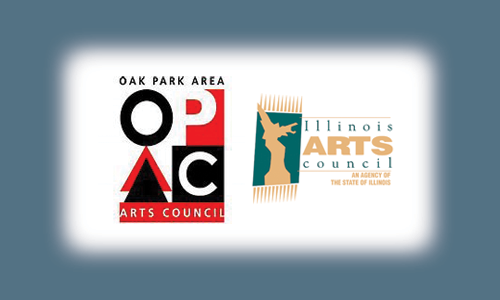Concert 1 2021
JANUARY 2021 22nd Festival Season VIRTUAL OFFERING:
Sing and Play in Dulcet Tone: The Intimate HandelMusic for Soprano, Mezzo, Two Violins & Basso Continuo
Featuring: Amy Conn, Soprano, Julia Bentley, Mezzo Soprano, Jeri-Louy Zike & Thomas Yang, Violins, Richard Yeo, ‘Cello, and Dennis Northway, Harpsichord
Duetto: Fronda leggiera e mobile H.W.V. 186 with Amy Conn and Julia Bentley
- Allegro
Fronda leggiera e mobile, fiato d’auretta istabile, è sempre il tuo favor, sorte incostante! A light and shifting frond, an unsteady breath of the breeze, such is always your goodwill, fickle destiny! - Andante Larghetto
Saggio quel cor, quell cor che libero mai not da fede al placido sorriso ingannator del tuo sembiante. Wise is that heart, that heart never free, which puts no faith in the calm, deceitful smile of your countenance.
Lungi n’andò Fileno H.W.V. 128b for Mezzo Soprano – Julia Bently, Soloist
- Recitative Lungi, lungi n’andò Fileno
Far, far Fileno has gone, Fileno, the better part of my life, soul of my soul, heart of my heart! O God! If at least I knew where, leaving me, he directed his steps, for, as a sign of my faith, I would fly close to my dear beloved. But since that much is not granted to me, Ah! Dissolve meanwhile my grieving eyes in bitter tears. - Aria – Largo - Sì, piangete, O mie pupille
Yes, weep, O my eyes, and at the sound of your tears let my heart respond with sighs. And, let resound in plaintive echo, in every cave, in every cavern, my suffering and my sorrow. - Recitative Ahi! M’inganno, infelice
Ah! I deceive myself, unhappy me, if in such cruel torment I hope to find pity for my torture! No, the suffering is not enough if it is not permitted for me to hope. In such a cruel fate, except for the tyranny of a cruel death, nor does the endless weeping help to break the harsh grip of destiny. - Aria – Andante – Dunque se il tanto piangere
Thus, if so much weeping is not enough to crush fate, I wish to live no longer, since my miserable heart, such cruel pain, (its own fierce pain) can no longer withstand.
Trio in G Minor H.W.V. 387
- Andante
- Allegro
- Largo
- Allegro
Thomas Yang, Jeri-Lou Zike, Violin; Richard Yeo, ‘Cello; Dennis Northway, harpsichord
3 German Songs for Soprano Featuring Amy Conn
- Süßer Blumen Ambraflocken H.W.V. 204
Pretty, amber-scented flowers, how your silver brightness calls me, Him to glorify, who made you. As you fall, so will I rise heavenwards and sing in praise of God, Creator of this world. - Die ihr aus dunkeln Grüften H.W.V. 208
Ye, who from the dark, deep mines dig for the Mammon’s dross, here in God’s free air behold the treasures that are yours. Say not: mere color ‘tis and light, one does not count nor lock it up in chests. - Singe, Seele, Gott zum Preise H.W.V. 206
Sing, my soul, and praise the Lord, who in His great loving wisdom makes this world so beautiful! He refreshes us with sound, lends enchantment to our eyes with His flowering trees and meadows; let us praise Him and adore Him!
Amarilli Vezzosa H.W.V. 82 Soprano, Mezzo Soprano, and 2 Violins
- Sonata – Allegro
- Recitativo Daliso
Amarilli vezzosa, appunto in quest solitaria foresta, dove neppur giungon del sole I rai, di pianto sospirai, quante pene soffersi, sol per cagion del tuo superbo rgoglio: o la merced o la vendetta io voglio.
Graceful Amaryllis, here in this lonely forest, where not even the rays of the sun reach, you will sigh from weeping, from how many pains you have suffered, only by reason of your superb glory: I want either reward or revenge. - Aria Daliso
Pietoso sguardo, vezzo bugiardo, più non lusingano questo mio cor. Tempo è da cedere alle mie lagrime, che più resistere non sa’l dolor.
Pitiful glance, lying caress, no longer entice this heart of mine. It is time to surrender to my tears, which can no longer withstand the pain. - Recitativo Amarilli
Dunque tanto s’avanza d’un pastorel che m’ama la temeraria voglia? E, stolto, credi che la mercè che chiedi ti possa dar necessità d’impegno? Misero, e non t’avvedi che quell piacer ch’oggi il tuo cor desia figlio del genio mo d’uopo è che sia.
So how much closer comes the reckless desire of a shepherd who loves me? And, fool, do you believe that the mercy you ask could give you the need of commitment? Wretch, you are not even aware of whether this pleasure that your heart desires today is the child of genius or of need. - Aria Amarilli
Piacer che non si dona, per opra del piacer più tosto è pena. Forza crudel che sprona l’altrui voglia goder fende l’arena.
Pleasure that does not give itself for the work of pleasure is, rather, punishment. Cruel force, which spurs desire to enjoy what belongs to another, splits the arena. - Recitativo Daliso / Amarilli
Daliso: Sì, sì, crudel, ti accheta; o sia forza, o sia genio, o sia dispetto,, pria di morir fra lusinghieri affanni meglio è rapir ciò che donar si vieta.
Amarilli: Semplicetto che sei, cangia consiglio: mal sig ode quell bene che dall’ odio si acquista o dal rigore; e il vero amor solo d’amore è figlio.
Daliso: Yes, yes, cruel one, calm yourself; whether force or genius or spite, before dying among the alluring cares, it is better to steal what it is forbidden to give.
Amarilli: Little simpleton that you are, change your advice: the good that is gotten from hate or from severity is badly enjoyed; and true love alone is the child of love. - Aria Amarilli
Quel nocchiero che mira le sponde la tema dell’ onde dal sen discacciò. Ma se iontanto pretese conforto, invece del porto lo scoglio trovò.
That helmsman who aims at the waves has chased away the fear of the waves from his breast. But if, in the meantime, he expected comfort, instead of the harbor he found the rock. - Recitativo Daliso
Amarilli, Amarilli, in vano tenti consperanze fallacy uscir dal laccio ove ponesti il piede; che di tua data fede benchè fossero mille I guiramenti, sempre in sostanza poi o il rio l’accolse o li rapiro i venti.
Amaryllis, Amaryllis, in vain you try with false hopes to escape from the snare where you have set foot, that of your given faith, although a thousand would have been your oaths, always, essentially then, whether the stream welcomed them or the wind stole them. - Aria – Largo – Daliso
È vanità d’uncor quell vivere in amor sempre sperando. Convien più volte udir promesse di gioir, ma non il quando?
It is the vanity of the heart, always hoping for that life in love. Should it hear more times promises of joy, but not the when? - Recitativo Amarilli / Daliso
Amarilli: Or su, giacché ostinato vuoi oscurar d’onore il pregio, il core trapassami col ferro; e poi, crudele, di questo sen fedele, di cui non curi il tormentoso affanno, renditi pure a tuo piacer tiranno. Daliso: Come? Amarilli? Oh Dio, dunque . . . Amarilli: Non più; desio l’empia voglia saziar che ti tormenta; barbaro! Su, che fai? Prendi lo strale e in questo sen l’avventa. Daliso: Vincesti, ah sì, vincesti, ora ti chiedo pietade all’ error grave; alma che di prnar fu sempre accesa già sitibonda aspetta giusto risentimento all’ alta offesa. Amarilli: Ecco giunge opportune Silvano il mio buon padre; or sappi, a mico semplicetto pastore, che tu, credendo a’ lusinghieri detti del mio timore usato, perdesti il tempo ed il piacer bramato.
Amarilli: Come now, since you stubbornly want to overshadow the price of honor, pierce my heart with iron; and then, cruel one, from this faithful breast, whose tortuous cares you cure not, surrender then to your tyrannous pleasure.
Daliso: What? Amaryllis? Oh, God, and so...
Amarilli: No more; I wish to satisfy the impious desire that torments you; barbarian! Come, what are you doing? Take the arrow and hurl it into this heart.
Daliso: You have won, oh yes, you have won, now I ask you pity for my grave error; the soul that was always kindled with suffering, already thirsty, awaits the just resentment of its great offense.
Amarilli: Here arrives in time Silvano, my good father; now know, simple friend shepherd, that you, believing in the alluring tales of my accustomed fear, have lost the time and pleasure you longed for. - Aria a 2 con Ritornello
Sì, sì, lasciami, ingrate, ma pria rendimi il cor. Sei tu selce spietata, priva di senso e ardor. Su, su, restate in pace, né più chiedermi amor’ no, non hai tu la face per accender ardor.
Yes, yes, leave me, ungrateful one, but first give me my heart. You are a pitiless stone without sense or passion. Come, stay at peace, ask me no more for love, no, you have not the torch to kindle passion.

